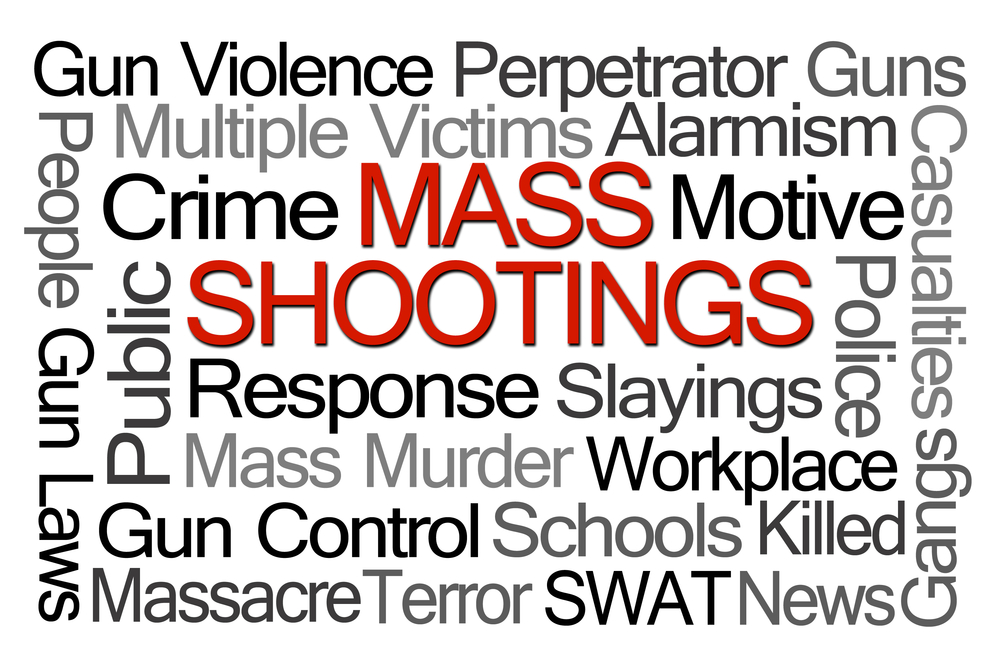TALLAHASSEE — After three hours of testimony from experts on Monday, the Republican head of a Florida Senate panel looking into mass violence and white nationalism suggested that increased background checks on gun sales might be the answer.
“Probably the thing that makes the most sense, if there is something to be done in the area of common-sense gun safety, would probably be an enhancement of some kind of background check system, to look and see where there are holes in that system and if there is room for improvement,†Senate Infrastructure and Security Chairman Tom Lee, R-Thonotosassa, told reporters.
Democrats in Washington and Florida have been pushing universal background checks, to close what they call “loopholes†in state and federal laws that allow private gun sales without checks.
Florida Senate President Bill Galvano, R-Bradenton, directed Lee to have his committee review acts of mass violence following mass shootings last month in El Paso, Texas and Dayton, Ohio. Federal authorities are investigating the El Paso massacre, in which 22 people were killed and two dozen other individuals were injured, as an act of domestic terrorism and a possible hate crime after the gunman allegedly targeted Hispanics before opening fire Aug. 3 at a Walmart.
Galvano also asked Lee, a former Senate president, to explore whether the Legislature needs to take additional action after passing school-safety laws in the wake of the Feb. 14, 2018 mass shooting at Marjory Stoneman Douglas High School in Parkland.
In addition to requiring improved school security, the 2018 law also raised the minimum age from 18 to 21 and imposed a three-day waiting period for the purchase of rifles and other long guns. The age and waiting-period requirements already applied to buying handguns, but the National Rifle Association filed a lawsuit challenging the new law, alleging that the restrictions on rifles are unconstitutional. That federal lawsuit remains pending.
The 2018 law also banned the sale or possession of “bump stocks,†which allow semi-automatic rifles to mimic fully automatic weapons. And it gives law enforcement officials the ability to seek “risk protection orders†from courts, allowing weapons to be taken away from people who pose a danger to themselves or others.
Lee’s committee, which held its first meeting Monday in advance of the 2020 legislative session that begins in January, heard from a pair of Florida State University criminology professors who are conducting federally funded research on mass shootings. The Senate panel also received updates from professional crime fighters, including Florida Department of Law Enforcement Commissioner Rick Swearingen.
While gun-rights advocates, including President Donald Trump, have blamed mass shootings on inadequate mental health services, Swearingen eschewed the link between mental health issues and gun violence. While some assailants have a history of mental health problems, “it is rarely the key†to violent acts, he said.
“They don’t snap. They decide,†he said. “Most plan their attacks, days, months, even years in advance.â€
Jay Reeve, the president and CEO of Apalachee Center, a mental-health treatment program in the Tallahassee area, also said “there is vast disagreement†about the mental health histories of mass shooters.
“I saw numbers as low as 3 percent and numbers as high as 50 percent,†when researching before Monday’s meeting, Reeve said.
“It’s all over the map,†he said, adding that “I don’t see how you could have a large number of mass shootings associated with mental illness.â€
Swearingen extolled the “behavioral threat assessment model,†which tracks such things as activity on the internet and social media posts, as the best way to identify people who pose the greatest danger.
Most shooters purchase or possess the weapons they use in committing acts of mass violence legally, or take the weapons from home, Swearingen told the panel, adding that there is a “huge gap†in the reasons perpetrators commit mass killings.
“I don’t care about the why. I don’t care about the how. I don’t care about the location,†the head of the state law enforcement agency said. “None of that matters, if we focus on the observable behaviors that will let us prevent that in the first place.â€
Democrats on the committee repeatedly tried, to little avail, to force the panelists to respond to questions about restrictions on assault-style weapons and high-capacity magazines, or other gun-control proposals.
For example, Sen. Annette Taddeo, D-Miami, pointed out that the Florida Fish and Wildlife Conservation Commission bans the use of high-capacity magazines for shooting some game animals.
“If we can cap magazine capacity to protect wildlife, why can’t we cap it to protect human life?†she asked.
When none of eight expert panelists responded, Taddeo said she would try another question, before Lee interjected: “Well, we’ve got crickets.â€
FSU criminology professors Jillian Turanovic and Brendan Lantz said mass shootings are becoming deadlier, and that “public mass shooters†are often radicalized through online hate groups.
The internet can “increase destructive behavior†and “act like an echo chamber,†Lantz said.
“People feel more anonymous,†he said, adding that the internet “facilitates the mobilization of groups.â€
When pressed by Democrats, Turanovic said states that have the highest mass shootings “are the states that have the weakest gun laws, or the most lenient.â€
At the end of the meeting, Lee said “there really is no silver bullet, excuse the pun,†to the issue, but said the behavioral threat assessment model pitched by Swearingen and other law enforcement officials holds “a lot of promise.â€
“Law enforcement’s recognizing …  that the future of some of this activity is going to be based on the internet. It’s a new world we live in,†he said.
By Dara Kam, The News Service of Florida
